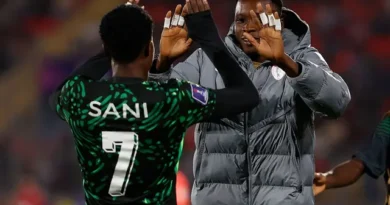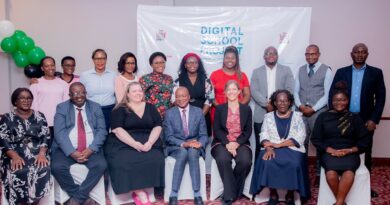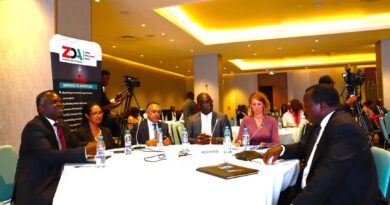Liberation Movements Summit Exposes Crisis of Democracy in Southern Africa
The 2025 Liberation Movements Summit held in Johannesburg from July 25 to 28 has reignited concerns over the democratic stagnation of six ruling Southern African parties that trace their roots to the region’s anti-colonial struggles.
The summit convened under the theme “Defending the Liberation Gains, Advancing Integrated Socio-Economic Development, Strengthening Solidarity for a Better Africa,” brought together the African National Congress (ANC) of South Africa, Zimbabwe’s ZANU-PF, Tanzania’s Chama Cha Mapinduzi (CCM), Mozambique’s FRELIMO, Angola’s MPLA, and Namibia’s SWAPO.
According to the host party ANC, the gathering aimed to reaffirm ideological bonds and historical legacies, while reinforcing the liberation parties’ continued relevance in a changing global order. “This critical gathering reaffirms the ideological foundations… and their historical role in securing independence, dignity, and development across the region,” read an official statement.
The summit’s tone, however, drew criticism for largely attributing the movements’ current struggles to external pressures such as economic crises, neo-colonial interference, and global geopolitics while downplaying internal shortcomings.
Still, there were flashes of introspection. South African President Cyril Ramaphosa acknowledged both foreign and domestic threats, citing declining electoral support, youth dissatisfaction, inequality, and internal corruption. “Many of the threats we face are internal… including corruption, patronage and the competition for public positions and resources,” Ramaphosa said. He called for peer accountability among the movements and proposed the institutionalization of mutual review mechanisms.
Namibia’s President Netumbo Nandi-Ndaitwah echoed that sentiment, urging the six parties to hold one another accountable, particularly in tackling corruption.
Notably absent from the broader summit narrative, however, was the issue of democratic decline. Only South Africa and Namibia are widely regarded as democratic. In countries like Zimbabwe, Tanzania, Mozambique, and Angola, the ruling parties have retained power through suppression of opposition and control over electoral processes.
In Zimbabwe, for instance, President Emmerson Mnangagwa’s ZANU-PF has systematically dismantled political opposition since 1980. Tanzania’s CCM government has imprisoned opposition leader Tundu Lissu, while Mozambique’s FRELIMO has been accused of election violence and recently charged a top opposition candidate with terrorism-related offences.
Angola’s MPLA also continues to suppress dissent, while Namibia and South Africa remain the only members with functioning democratic institutions. Even so, the ANC, long hailed for its democratic credentials, suffered its worst electoral performance in 2024, securing less than 40% of the vote and forming a government of national unity with the opposition Democratic Alliance.
Analysts argue the summit served more as a survival strategy than a forum for renewal. “The summit was billed as a gathering of liberation movements, not ‘former’ movements as they have previously described themselves. That change may indicate an effort to reclaim relevance and consolidate power in the face of growing opposition,” said political commentator Dr. Sipho Malunga.
Critics also questioned whether the proposed mechanisms of accountability would be effective. “There is little chance that Ramaphosa’s peer review framework will be implemented, let alone used to demand transparency or democratic reform,” said Malunga.
Perhaps most telling were the closing remarks by President Mnangagwa: “We have a sacred duty and responsibility to retain power… We should never allow ourselves to lose power.”
For many observers, that statement captured the summit’s underlying motive: not democratic renewal, but strategic collaboration among liberation parties to remain in power.
While the liberation legacy holds deep historical significance, critics warn that clinging to outdated revolutionary rhetoric may obstruct democratic progress in the region. As Ramaphosa himself acknowledged, “History demands that we don’t allow our legacies to be buried under the rubble of revolutionary nostalgia.”
Despite those words, many fear that the summit marked yet another missed opportunity to reform, leaving ordinary citizens across the six countries still yearning for inclusive governance, economic opportunity, and true democratic accountability.



